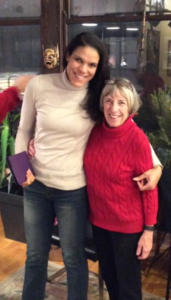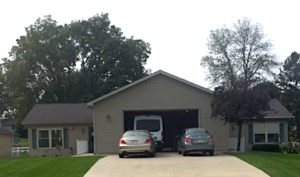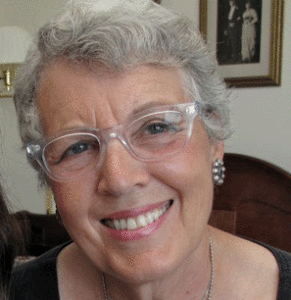Saturdays with Seniors: Karen Perseveres
September 19, 2020 • 3 Comments • Posted in guest blog, memoir writing, teaching memoir, writing promptsI am pleased to introduce Karen Fontaine as our Saturdays with Seniors guess blogger today. A Professor emeritus in the College of Nursing and Psychiatric Nursing at Purdue University Northwest, Karen has three children and three grandchildren. ”I am fortunate to be part of a racially diverse family,” she says. Her son Jean-Marc is a carpenter at the University of Illinois, her daughter Simone is an MD in Champaign-Urbana, and her son Marcel is a stock transfer agent in Chicago.
“My daughter is 6’1” tall,” she says with a laugh. . “I look like a midget next to her!” Two of Karen’s grandchildren — Danielle and Christopher — are in the medical field, the third, Simone’s 6’7” son Jaycee, is flying to Finland next week to play professional basketball there. “We are really excited for him.”
In the memoir-writing class at The Admiral, Karen took the prompt “Learning to Read” one step further and wrote an honest and enlightening essay about learning to read lips — and faces. She generously agreed to let me share it here.
Learning to Lip/Face Read
by Karen Fontaine
I was born with my hearing loss, but it was not diagnosed until adulthood. There was a lot of hearing loss on my mother’s side of the family. My brother’s daughter had hearing aids by the age of four, and my son needed speech therapy by age three. As a child I had enough hearing to learn speech, but still. It’s amazing to me that no one identified my hearing loss. Not even me.
In high school, I couldn’t figure out how my friends knew the words to popular songs. Little did I know that the only way I could learn the words was if the groups appeared on TV so I could lip read when they sang! I never consciously set out to learn how to lip/face read. I think I just improved at it as my hearing steadily decreased.
Only 30% of English can be read on the lips. The rest of the communication is inferred from the context, movements of the face, and expression of the eyes. It takes inordinate concentration to lip read and it is a matter of filling in the blanks and guessing.
I find myself exhausted after significant lengths of time spent talking with others. I often have to remind my husband to give me the context when he suddenly starts talking. Other barriers include hands in front of one’s face, mumbling, talking quickly, talking with little lip movement, accents and mustaches.
During my 33 years as a professor, my students were a great help. Those in the front of the classroom would restate questions from people in the back. I also moved around the room a great deal in order to connect with students. Faculty and committee meetings were a nightmare. People often talked at the same time and I seldom knew what was happening.
But I persevered.
Zoom has helped me in meetings. People don’t wear masks while they’re Zooming, and I can see everyone’s face and lips. I can’t always see people’s lips when we are sitting around a table in face-to-face meetings.
However, even with Zoom, it can still be difficult to participate. I can’t always tell when a person has stopped talking. I fear I might interrupt someone, so by the time I have decided that it is time to jump in, someone else has already started talking. You will notice I am fairly quiet during Zoom meetings!
People are an important part of my life. Helen Keller said “Blindness separates people from things; Deafness separates people from people.” That is a powerful statement of what it is like to be deaf. I miss so much, but I keep trying to stay connected.




